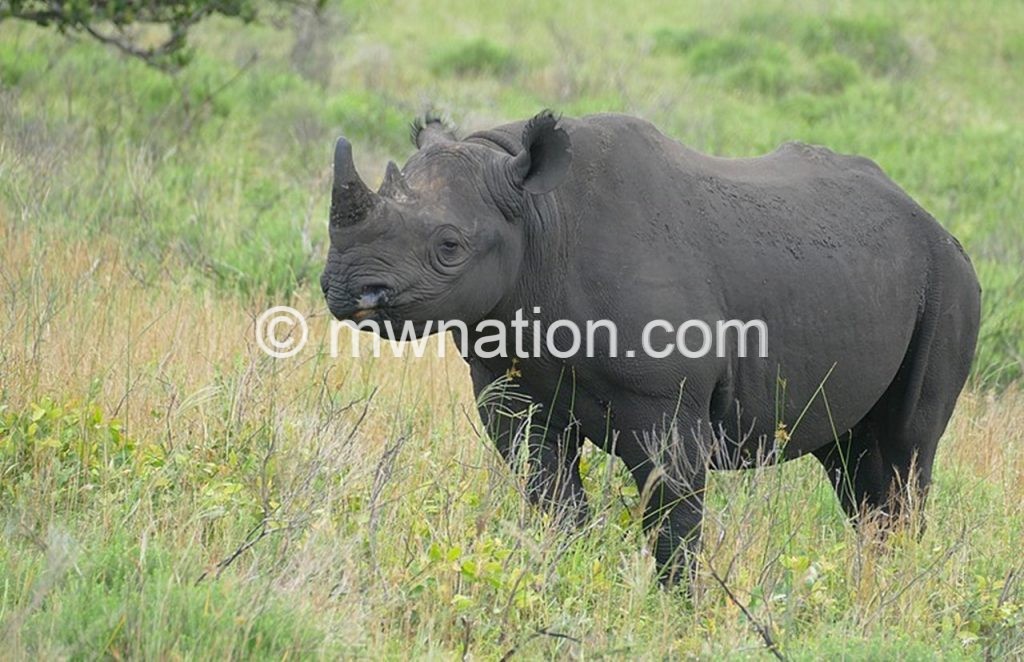No giant poached at Majete
In the 1980s, Majete Wildlife Reserve lost its rhinos and elephants to poachers looking for their horns.
However, African Parks, which took over the management of the tourist attraction in Chikwawa in 2003, has brought the endangered species back to the Shire Valley.

Almost 17 years on, Majete does not only play home to the horned giants, but all the big five.
Its field operations manager, Gervaz Thamala, says it sounds like a fairytale that the woodland lost its vital animals to poachers.
He recalls that Majete had just 217 animals when African Parks arrived, but it now has almost 13 000.
Thamala explains: “Some animals have been killed by poachers over the years, but I am proud to say that we haven’t lost a rhino and an elephant to poaching since African Parks came here and we try to maintain that.
“All of us here put in our hearts to protect rhinos and elephants as keystone species of this game reserve. We can’t afford to be losing them.”
A visit to the wildlife reserve’s control room supports Thamala’s sentiments. Its walls are draped in photographs of some rhinos, lions, giraffes and cheetah that roam the wilds of Majete.
There are large screens, computers and other gadgets which track the movements and locations of all the protected species all day.
“Whenever any ranger on duty comes across a rhino, they send a message here indicating its name and the location where it has been spotted,” says Thamala.
The situation room allows the game rangers to swiftly respond to danger before an animal drops dead.
“We do this to ensure that we are keeping the rhinos safe from poachers,” Thamala explains.
But why only rhinos, not other animals found in Majete?
Thamala says: “Rhinos are an incredibly endangered species and that is why they are our main priority. However, whenever the rangers are out there looking after them, they are also protecting other animals in the wildlife reserve.”
Majete Wildlife Reserve park manager John Adendroff pledges to maintain the gains achieved in the conservation of rhinos and elephants by pushing training standards and motivating the staff.
The enhanced strategies also involve providing the protectors of game necessary equipment so that they can effectively work.
“As long as we do that and work closely with communities by ensuring they are the eyes and ears of our operations and that our relationship is cordial, I think we will achieve our goal of protecting rhinos and elephants,” he says.
Recently, Minister of Tourism, Wildlife and Culture Michael Usi toured Majete to appreciate the conservation work underway.
He described Majete as a model for all nature reserves in the country.
“It is well stocked and all the big five are here. Apart from that, the impressive management that happen in the offices as well as in the reserve should be replicated in all the other national parks if we want to make wildlife conservation a reality,” said the minister.





